-
 +2 +1
+2 +1This Disease is Deadlier Than The Plague
-
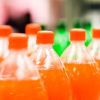 +3 +1
+3 +1What the FDA's ban of BVO — a soda additive and flame retardant — says about food safety in America
"It's disgraceful that it took decades of regulatory inaction to protect consumers from this dangerous chemical"
-
 +1 +1
+1 +1TWiV 1130: Clinical update with Dr. Daniel Griffin
Good info on long covid,among other topics.
-
 +2 +1
+2 +1The Horrible Truth About Shaken Baby Syndrome Cases
Junk science has put people on death row.
-
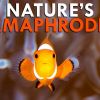 +32 +5
+32 +5Hermaphroditism: Nature Isn't Binary
-
 +27 +6
+27 +6One-week social media break boosts young women's self-esteem and body image
A study found that young women who took a one-week break from social media experienced significantly higher self-esteem and body image, especially those prone to thin-ideal internalization, highlighting the mental health benefits of temporary social media detoxes.
-
 +38 +8
+38 +8The cancer research flaw uncovered by a Sydney student
Undergraduate Danielle Oste found something thousands of scientists had overlooked.
-
 +26 +4
+26 +4‘My 50-year puzzle of the East Lothian hill where ancient fires burned’
Leading archaeologist Professor Ian Ralston has rewritten the story of Doon Hill in East Lothian, with his long career set to be honoured
-
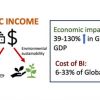 +25 +3
+25 +3Basic income can double global GDP while reducing carbon emissions
Giving a regular cash payment to the entire world population has the potential to increase global gross domestic product (GDP) by 130%, according to a new analysis published June 7 in the journal Cell Reports Sustainability. Researchers suggest that charging carbon emitters with an emission tax could help fund such basic income program while reducing environmental degradation.
-
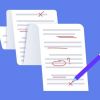 +18 +2
+18 +2Why academics should hire generalists to edit their work (opinion)
When seeking an academic editor, you may want to consider a generalist, writes Natalie Schriefer, who suggests how to find the best one for your work.
-
 +21 +2
+21 +2Svante Arrhenius, the Man Who Foresaw Climate Change
Svante Arrhenius, awarded with the Nobel prize, discovered at the end of the 19th century that CO2 emissions caused an increase in the planet's temperature.
-
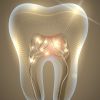 +21 +4
+21 +4World-first tooth-regrowing drug will be given to humans in September
The world's first human trial of a drug that can regenerate teeth will begin in a few months, less than a year on from news of its success in animals. This paves the way for the medicine to be commercially available as early as 2030.
-
 +9 +1
+9 +1Masturbation helps to alleviate psychological distress in women, study suggests
A study found that women with higher psychological distress frequently masturbate, using it as a stress-relief strategy. Most participants reported positive effects such as happiness, relaxation, and self-care, challenging longstanding stigmas.
-
 +14 +3
+14 +3The Case Against Charles Darwin
How the investigation into a grisly murder shocked 19th-century France and framed the scientist as an accomplice.
-
 +18 +2
+18 +2Glow of an exoplanet may be from starlight reflecting off liquid iron
A phenomenon called a "glory" may be happening on a hellishly hot giant planet.
-
 +26 +5
+26 +5Eating The Hottest Peppers In The World For Science (okay I regret this)
2 comments by Gozzin -
 +37 +4
+37 +4Survey finds that 60 firms are responsible for half of world’s plastic pollution
Study confirms Philip Morris International, Danone, Nestlé, PepsiCo and Coca-Cola are worst offenders
-
 +30 +6
+30 +6NASA's mission to an ice-covered moon will contain a message between water worlds
METI International is a scientific organization dedicated to transmitting powerful radio messages to extraterrestrial life.
-
 +26 +4
+26 +4Autoimmune Diseases Are Sexist. Here’s Why.
-
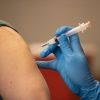 +29 +4
+29 +4Vaccine breakthrough means no more chasing strains
Scientists at UC Riverside have demonstrated a new, RNA-based vaccine strategy that is effective against any strain of a virus and can be used safely even by babies or the immunocompromised.
Submit a link
Start a discussion




















